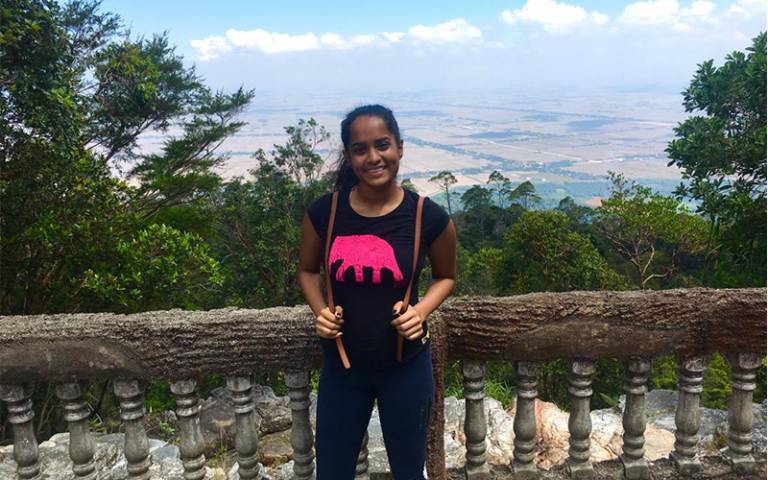Spotlight on Economics and Policy of Energy and the Environment MSc graduate Shanali Pethiyagoda
18 June 2020
Economics and Policy of Energy and the Environment (EPEE) MSc graduate Shanali Pethiyagoda shares her experiences of the programme and what she is doing now.

What is your background?
I read for a BSc in Economics at the University of Bristol, with a focus in econometrics, and then worked briefly in health economics research before shifting towards a career in environmental economics. I spent two years working for two international research organisations which are part of the Consultative Group on International Agricultural Research (CGIAR). During this time, I was based in Sri Lanka and Malaysia, where I focused on foresight scenario modeling which considered the nexus between climate change, socioeconomic drivers, and impacts to the biophysical environment.
What have you been doing since graduating Economics and Policy of Energy and the Environment MSc?
I was fortunate enough to be offered a job immediately after my MSc. I am currently working as an Environmental Economist Consultant to the Food and Agriculture Organization of the United Nations (FAO), at their Headquarters in Rome, Italy. Under the Climate and Environment Division, I am a member of the Adaptation Team which focuses on addressing climate change adaptation concerns related to the agriculture sector. This involves diverse activities, from building member states’ technical capacity for analysing climate vulnerabilities and prioritising adaptation options, to improving the evidence base and knowledge tools available for informing member states’ national adaptation planning, monitoring, reporting and budgeting processes.
How has your MSc helped you with your new career?
My MSc was pivotal in forging my current career path. It had been a long-standing dream of mine to become an environmental economist – the technical specialisation provided by this MSc, together with the calibre of education provided at UCL, made it possible for me to realise that dream. In particular, I believe the interesting selection of optional units on offer allowed me to gain a competitive edge. Opting to take Advanced Environmental Economics, Econometrics, and Behavioural Economics not only elevated my understanding of the subjects substantially, but also lead me to undertake a technically-challenging yet rewarding dissertation under the critical supervision of my former lecturers. A strong advantage for my CV – borne of my dissertation – was the offer to become a member of the newly formed Behavioural Economics for the Environment Team of UCL. Being a part of this research group not only gave me invaluable opportunities to present my work to various prominent institutions, and provide leverage in job interviews, but is also now a potential entry point for exciting new initiatives in my current role at FAO.
Do you have any advice for future graduates?
I found it extremely valuable to make efforts to ensure my dissertation was carried out with a research organisation or think tank. Collaborating with the Centre for Environment, Fisheries and Aquaculture Science brought about fresh insights to my dissertation that would not have been possible without their expert guidance. Crucially, it also opened up a rare opportunity to explore potential PhD possibilities, as well as a job offer.
The demands of the MSc can sometimes be overwhelming, and I would strongly advise students make use of the free mentoring services offered by the UCL Student Support and Wellbeing team. They were extremely helpful in enhancing my time management and organisational skills, which I found essential to keep on track of all assignments, exams, and the final dissertation.
 Close
Close

